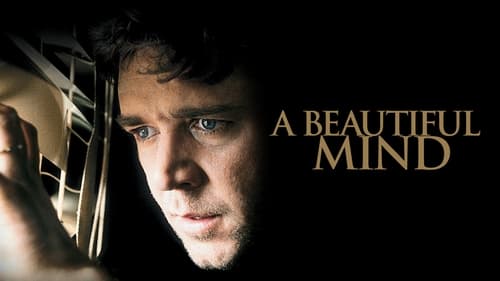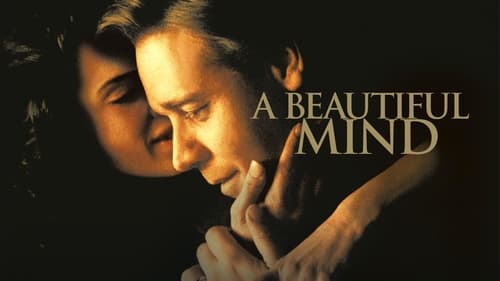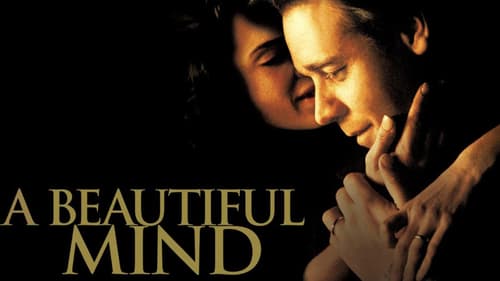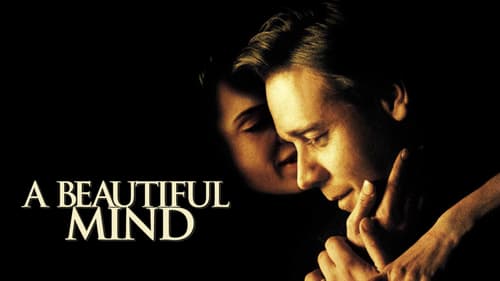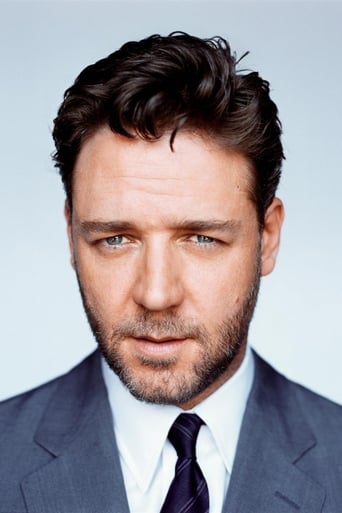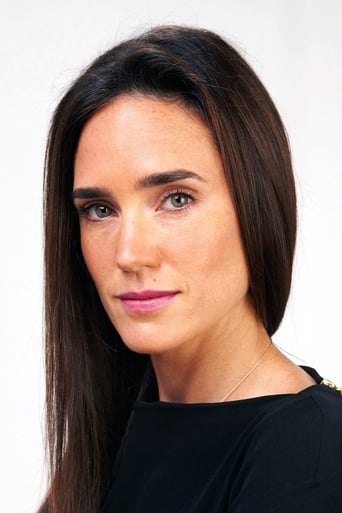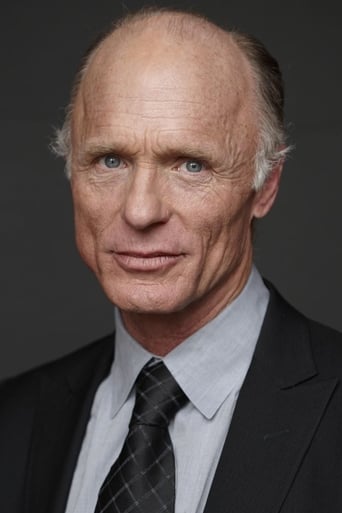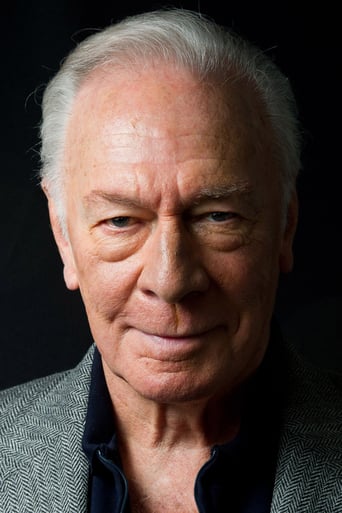GetPapa
Far from Perfect, Far from Terrible
SincereFinest
disgusting, overrated, pointless
Matylda Swan
It is a whirlwind of delight --- attractive actors, stunning couture, spectacular sets and outrageous parties.
Phillipa
Strong acting helps the film overcome an uncertain premise and create characters that hold our attention absolutely.
sloba018
Perfect story, great acting. Movie for whole family.
dariushgorgvand
For the first time, I got to see this movie. I thought It should be tedious, But the referral of the film to reality shocked me
gottdeskinos
John Nash's story is without a doubt interesting and certainly not easy to translate into a movie format. But that cannot be an excuse. We get a movie that is a bit of a heartbreaking drama, a bit of a spy action flick and a bit of a biographical picture (with many fictionalized parts). But it does nothing really exceptionally well. What it does well is to dumb everything down for a broad audience and to make it as little offending as possible.*SPOILERS*First, it would have been nice to see what makes John Nash actually a genius. We see him being awkward and weird, highly intelligent and constantly scribbling math on some surfaces. To the average movie audience it's clear: This man must be some sort of genius! Come on, don't treat your audience like that, Ron Howard! If you really must dumb it down, include maybe at least a reference to why he actually won the Nobel price and why his work was important. Well, at least we got the scene with the women in the bar.Secondly, many details of Nash's life are just wrong or fictionalized, which does not have to be a bad thing per se. For example, in "Amadeus" the writer's allowed themselves a lot of freedom with Mozart's life in order to tell a greater, romanticised story about art. But here a story that was not always very "clean" in reality is told in a fashion for maximum Oscars chances. It wants to be a story full of heart (and even sacrifices intelligence for that), but if you take a closer look, it is a calculated movie. Anything that could be offensive is left out. Just google Nash's real biography if you don't believe me.And this sugarcoating includes the depiction of schizophrenia. I don't have much insight into this mental illness but I'm sure it doesn't work in the way the movie shows us. Nash sees the same three imaginary people over and over again until we as an audience learn they are not real. Or are they? Initially, this state of confusion gave the movie interesting touch of mystery, that I actually enjoyed. I had no idea if this movie would stick to the sort-of-biopic-format or turn into an Alfred Hitchcock thriller.It's really hard to find anything else to compliment. The cinematography looks kind of flat? And I can't even say I'm a fan of Connelly's slightly expressionless acting. Ironically, she won an Oscar instead of Crowe, who actually was quite convincing.
classicsoncall
You'll recall the scene in the movie when John Nash (Russell Crowe) is given an initial tour of Wheeler Labs, and he questions the presence of Big Brother watching from an elevated catwalk above the main floor. A hint to the viewer that what Nash is experiencing occurs later in the picture when William Parcher (Ed Harris) meets Nash for the first time, and refers to himself as 'Big Brother'. If in fact Parcher was a real person, it's doubtful that anyone at Wheeler would have revealed Nash's observation to him. That's what struck me the first time I saw this film and then again when I watched it once more this morning.Well, like a lot of movies based on a true story that I initially find compelling and worthy of the highest rating here on IMDb, I'm left frustratingly disappointed that the screenplay distorts the facts in order to give the most appealing impression possible to the viewer. The main one here was Nash's relationship with wife Alicia, portrayed by Jennifer Connelly. Their first marriage only survived for three years before his schizophrenia drove them apart, resentful over the fact that she had him involuntarily committed. Their romantic relationship then rekindled after he won the Nobel Prize, and well after his mental illness had subsided.What I liked about Crowe's portrayal of Nash was the way he came to grips with his delusions and later treated them with a dose of good humor - "There's no point in being nuts if you can't have a little fun" is what he stated to his friend Sol (Adam Goldberg) when he came to visit. Later on, reinstated as a teaching professor at Princeton, he self assuredly asked a student to verify the presence of a 'new person' he hadn't seen before. Those subtle instances helped reestablish Nash as someone who recognized that he was mentally ill, and that he needed to control his health with the proper medication.For anyone dealing with mental illness within their own family, I think this film can be an eye opener about the fear and hopelessness that the sick person experiences. I state that from a personal perspective having observed now adult children going through the pain and embarrassment of delusional fantasies that at times became downright scary. In that regard, the movie presents a reasonable perspective that illnesses like schizophrenia can be treated with the proper attention, a dedicated medical provider, and the correctly prescribed medication. I've seen it happen more than once.



